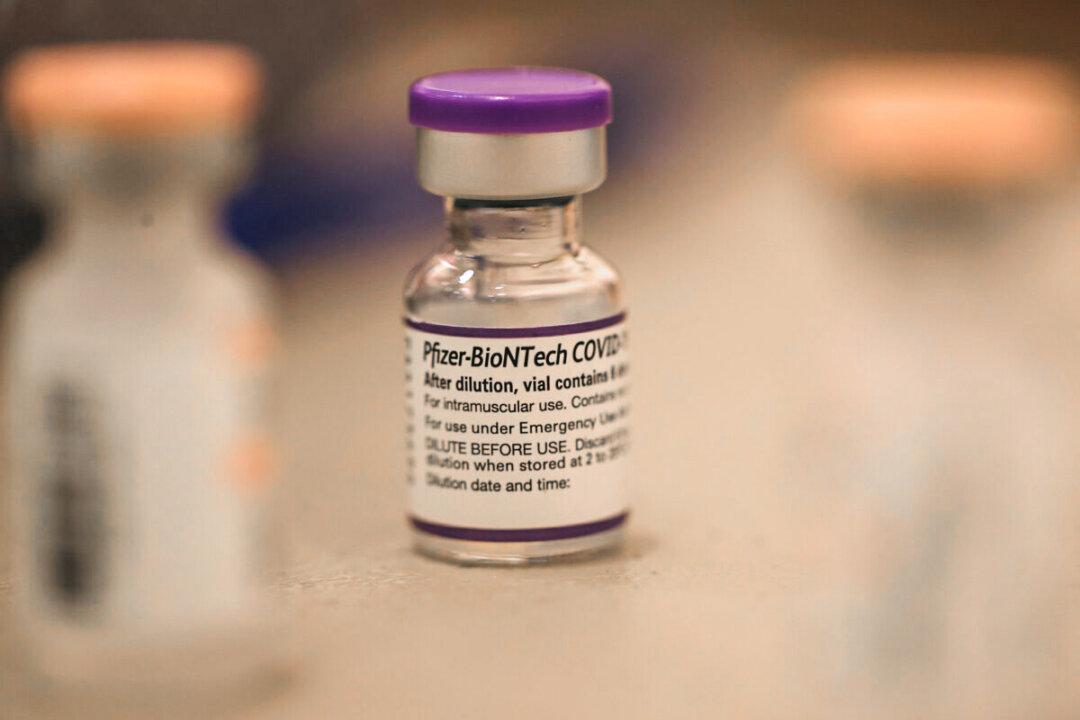Pfizer and its German partner on Monday said they plan to file for expanded approval from U.S. regulators for their COVID-19 vaccine after a new study indicated the shot remains effective for over four months.
Vaccinated children 12 to 15 saw 100 percent effectiveness against COVID-19 in an ongoing clinical trial, Pfizer and BioNTech said in a statement. That conclusion was drawn from measurements taken seven days through over four months after the second dose of the two-dose regimen. Data from 2,228 participants were analyzed.





